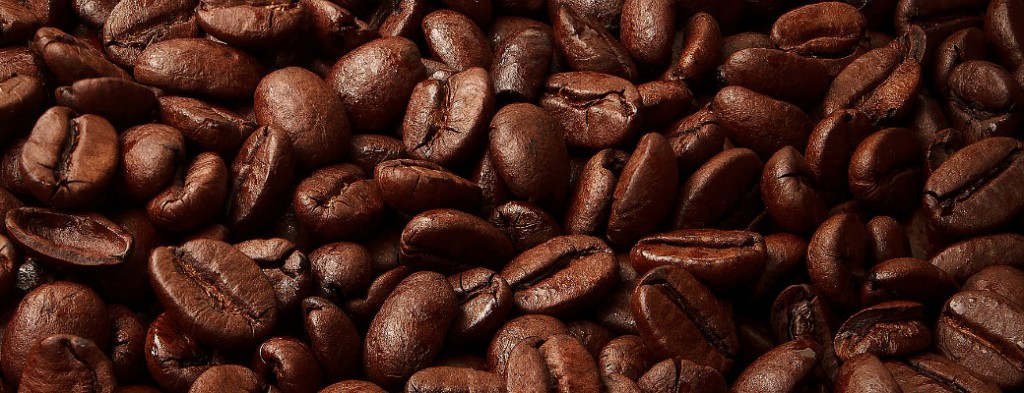Thus, the lethal dose of caffeine is from 5 to 10 grams for an adult. A large serving of coffee contains about 340 mg of alkaloid, so it is unrealistic to die even from 15 cups a day – the stomach or bladder will most likely not stand it.
Disputes about the dangers and benefits of coffee have been going on in the scientific and medical communities for a very long time. Most experts, based on the data of numerous studies, are inclined to recognize moderate coffee consumption as beneficial for the human body and even able to prevent certain diseases (for example, Alzheimer’s disease, parkinsonism, urolithiasis, etc.).
How coffee works on the body
The main active ingredient of the drink is caffeine, which increases the feeling of cheerfulness, enhances the tone of blood vessels and improves gastric secretion. At the same time, an overdose of coffee and caffeine causes a number of unpleasant sensations, including tachycardia (increased heart rate), insomnia, hyperhidrosis (excessive sweating) and anxiety.
There is an opinion that caffeine is a stimulant of the nervous system. But in essence. It is erroneous. This alkaloid does not have a direct stimulating effect.
In its chemical structure, it is similar to a substance that is involved in the regulation of sleep and wakefulness called adenosine. By binding to specific receptors of nerve cells located in the brain, adenosine, as it were, gives a signal that the “guard is tired” and it’s time to sleep. Caffeine itself is able to bind to these receptors, preventing adenosine from reaching them. Thus, it blocks the signal transmission of fatigue, and the person remains alert. After a couple of hours, most of the caffeine will be removed from the body, adenosine receptors will be released, and the state of fatigue will return.
In addition, by blocking adenosine receptors, caffeine simultaneously increases the sensitivity of dopamine. And dopamine is one of the main neurotransmitters that causes a feeling of satisfaction and is able to elevate mood.
Caffeine causes an increase in the levels of the main stress hormones – cortisol and adrenaline. As a result, tachycardia occurs, there is an increase in blood pressure and an acceleration of blood flow and, as a result, the supply of oxygen to tissues improves. All this also does not allow the body to fall asleep.
We also mention the weak diuretic effect of caffeine.
From the foregoing, it becomes clear that it is not recommended to exceed the dose of caffeine. And the point here is not only that the described unpleasant symptoms of stress can intensify and even lead to coma. The main danger (even two) is the addiction of the body. On the one hand, this will lead to the need to produce more and more hormones and mediators in order to achieve the same level of effect as before. And, on the other hand, it will contribute to the depletion of their synthesis.
Is there a lethal dose of this drink?
From a purely theoretical point of view, this is possible. True, for this you will have to drink a horse dose of coffee in a very short period of time, and this is physically impossible. But do not forget that each organism is unique and it is impossible to say exactly how it will react. But from drinking 2-3 cups a day, death will definitely not occur. Like a coma.
How many cups of coffee does it take to die?
Nowhere else in the world have such studies been carried out. At the same time, we can say that there has not been a single case recorded in history when death occurred from a large dose of coffee. Yes, excessive doses of this drink can provoke, for example, a heart attack. Especially in older people with chronic diseases.
In healthy people, coffee cannot cause death. Occasionally, there are reports of fatalities related to caffeine consumption on the Internet. But in these cases, we are not talking about coffee, but about caffeine tablets or energy drinks.
Studies have shown that the consumption of about 200 mg of pure caffeine per 1 kilogram of the victim’s weight led to death. Those. about 15 – 20 grams of alkaloid for an adult. Let’s count a little now.
- One 30 ml cup of espresso contains about 60 mg of caffeine. That is approximately 2 mg per 1 ml.
- A large 200 ml cup of Americano contains about 150 mg of caffeine. Those. its concentration is 0.75 mg per 1 ml.
- Thus, simple calculations show that in order to die, a person weighing 70 kg should almost immediately drink 7 liters of espresso or 18.5 liters of Americano. This is beyond the power of anyone. And the body itself will not allow this.
And, finally, we can mention that modern medicine has proven methods for treating caffeine poisoning and simply will not let the patient die. But this is for an adult patient.

Teenager and coffee: a lethal dose of coffee for a teenager
Children are not recommended to drink a lot of coffee. And energy drinks are generally prohibited. And parents have to watch it. Nonspecific reactions of the child’s body to large doses of caffeine can be fatal, as happened, for example, with one girl who drank two energy drinks at once.
Similar reports constantly appear in the press. Most of them concern teenagers. At the same time, smoking and alcohol consumption are factors that can provoke death.
The consumption of 600 mg of caffeine per day is an absolutely safe dose for an adult. Above, we cited the content of this alkaloid in different types of coffee. Therefore, everyone will be able to count the comfortable number of cups. For adolescents, the dose should be reduced at least twice.
Danger for the driver: can drivers drink coffee?
If there is nothing criminal in driving after a morning cup of coffee, then with the evening use of this drink, the issue is much more complicated. Let’s remember exactly how caffeine gives energy. This is achieved by deceiving the nervous system. Despite the sensations, the person is still in a tired state, his concentration and reaction speed are reduced. And do not forget that the stimulating effect of caffeine is relatively short-lived. And the more tired a person is, the shorter the interval of transition from cheerfulness to a sleepy state. In the morning, such a change is easy to miss. This is the reason for the large number of related accidents.
We mention that caffeine is the main, but not the only alkaloid contained in coffee. And not the only one with a pseudo-stimulating effect. Exactly the same effects are characteristic of theobromine. True, its content in coffee is negligible, since most of the theobromine is lost during roasting and grinding. But cocoa has a high content.
How much coffee do you need to drink at once to die?
Above, we gave the corresponding calculations and said that the body will not allow you to gain a lethal dose of caffeine from coffee. Indeed, having discovered an overdose, he will turn on various defense mechanisms.
First there will be nausea, then vomiting and diarrhea (diarrhea). Then a lot of discomfort will be delivered by tachycardia and muscle cramps. In this state, a person simply will not be able to continue drinking coffee.
An overdose can occur after 5-8 cups. Notorious coffee lovers are familiar with its symptoms. For the rest of the consumers, we give them:
- the appearance of cold sweat;
- dizziness;
- tachycardia;
- difficulty breathing, in particular, inhalation.
After about 20 minutes, all these symptoms disappear. To speed up the onset of relief, it may be recommended to induce vomiting and try deep breathing.
Summing up
An overdose of coffee is not the best method of parting with life. No one will be able to overpower 1.5-2 kg of ground coffee in one sitting (unless, of course, there are serious concomitant diseases, the presence of which can significantly reduce the volume required for a fatal outcome). The lethal dose of the caffeine alkaloid contained in the drink is much easier to obtain from pills or even energy drinks.
A dose of coffee in the amount of 4 cups a day is absolutely safe for an adult. For children, it is two times less.
It is also impossible to die from excessive consumption of coffee because the body itself has time to take countermeasures. And modern medicine can help him in this fight, which can quickly stop all manifestations of caffeine overdose.






